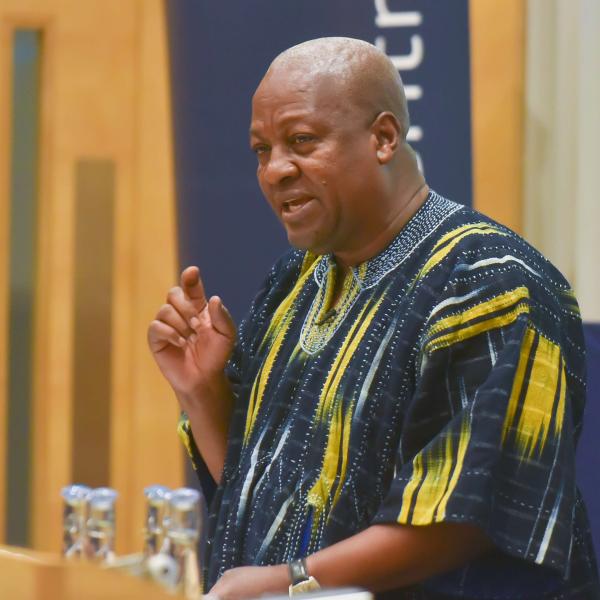The era of the African democratic spring
‘Democracy is an antithesis of dictatorship, authoritarianism, tyranny, and despotism,’ said Mahama in his introductory speech. ‘Democracy is a system that promotes the participation of the citizens in how they are governed. It reposes sovereignty in the people on whose behalf leadership is exercised. It is based on the rule of law, respect for rights, and freedoms of citizens.’
‘We are now living in the era of the African democratic spring,’ he continued. Elections are everywhere. There is an extended respect for human rights and freedoms, an expanded media space. Citizens have the ability and the will to force democratic change: ‘Little sparks can trigger a chain of events that end up dislodging even the most entrenched dictator.’
There is no doubt that this is having a positive impact in Africa, with many countries seeing an average GDP growth over the past decade of 4% to 6%, and a rise in foreign direct investment. Telecommunications and IT have developed. The African middle class has prospered, while per capita income has increased for many states. Extreme hunger and malnutrition have reduced and primary school enrolment is up. ‘All these positive developments are the dividends of democracy,’ said Mahama.
Difficulties of democracy
But no one is yet in a position to sit back on their laurels. African democracy is still fragile, he said.
Elections, the heart of democracy, are indeed now common throughout the continent. They are an instrument for the people to exercise choice about who their leaders should be. Unfortunately, he pointed out, they are also an instrument for pseudo-democracies to justify themselves, and to ensure the continuity of power for the sitting regime which may be re-elected on as much as 95% of the vote.
No one is particularly clear on the best way to run elections. Mahama himself questions Ghana’s First Past the Post system, which encourages the development of one or two large parties. The tendency to swing between these two parties can leave projects unfinished when a new government comes in with different priorities. This, he said, in answer to a question from the audience, was the reason the road from Wa to Navrongo was still in such poor condition.
A particularly vexed subject in Africa is the question of fixed presidential terms and how long they should be. Botswana’s Mokgweetsi Masisi said he was happy with fixed terms when he visited Oxford in 2018; Gabon’s President Ondimba, however, was not a fan, believing that they did not allow enough time to get things done. Mahama seemed to agree with the principle of fixed terms, but thought that Ghana’s current four-year maximum was not quite long enough.

